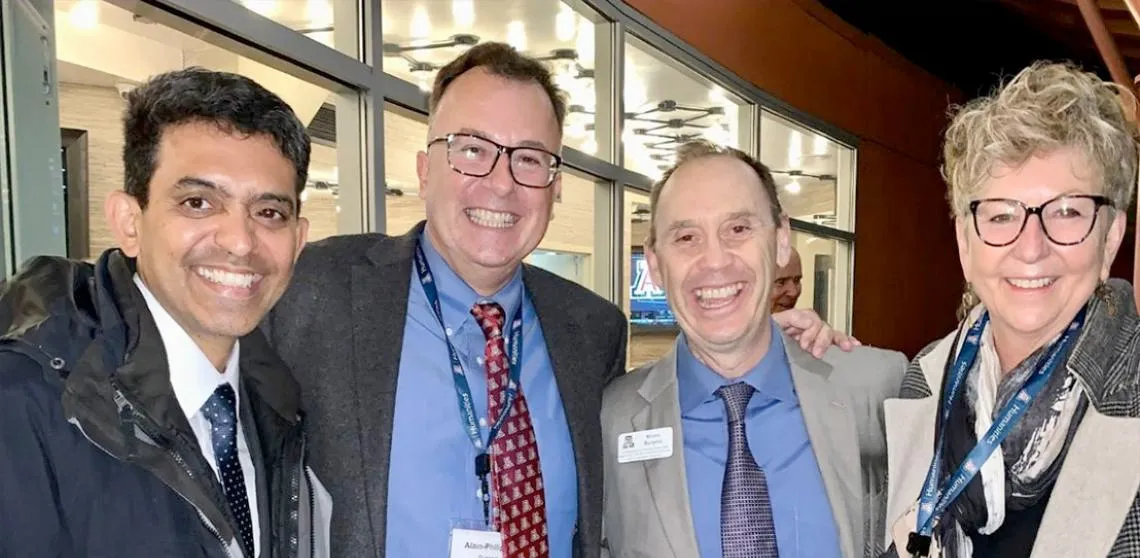CAPLA and Other UArizona Deans Share Insights on Transdisciplinary Applied Humanities Program

The Modern Languages Association Annual Convention, which gathers more than 5,000 scholars of languages and literature each year, isn’t where you would expect to find College of Architecture, Planning and Landscape Architecture Dean Nancy Pollock-Ellwand.
But at the 2023 MLA Convention in San Francisco earlier this month, Pollock-Ellwand participated in a panel to discuss the University of Arizona’s innovative Bachelor of Arts in Applied Humanities, a transdisciplinary program that combines professional training with the skills of the humanities. She was joined by College of Humanities Dorrance Dean Alain-Phillippe Durand, College of Agriculture and Life Science Dean Shane Burgess and Eller College of Management Dean and Halle Chair in Leadership Karthik Kannan.

Eller College of Management Dean and Halle Chair in Leadership Karthik Kannan, College of Humanities Dorrance Dean Alain-Phillippe Durand, College of Agriculture and Life Science Dean Shane Burgess and College of Architecture, Planning and Landscape Architecture Dean Nancy Pollock-Ellwand in San Francisco. Photo courtesy College of Humanities.
The Applied Humanities program, which is managed by the College of Humanities in partnership with seven other UArizona colleges, offers eight areas of emphasis, ranging from Business Administration to Game Studies to Rural Leadership and Renewal—including one in partnership with CAPLA: Spatial Organization & Design Thinking.
The Bachelor of Arts in Applied Humanities with an emphasis in Spatial Organization & Design Thinking provides an integrated and holistic approach to understanding and affecting the physical world, bringing a humanities perspective to the future of the built environment. The program offers courses in sustainability, digital media, fabrication technology and more, preparing students for jobs that communicate about—and effect change in—buildings, cities and landscapes. The degree can also be a stepping stone to graduate studies in design, architecture, urban planning and landscape architecture.
During the MLA panel, Pollock-Ellwand discussed the emphasis area’s structure and courses while speaking more broadly to the value of collaborating across colleges and degree programs on applied humanities offerings. “We envision a world in which all people experience a sense of belonging in healthy and inclusive communities that are empowered to work well together,” she says. “The Spatial Organization & Design Thinking emphasis joins the art and science of built environment disciplines with humanities to focus on the world’s largest challenges: social justice, environmental resilience, rapid urbanization and technological innovation.”
“In the contemporary world, no entrepreneur, diplomat, engineer or healthcare worker can succeed without applying the essential skills we practice and teach in the humanities,” say says Durrand. “So this new interdisciplinary curriculum brings together the humanities with those professional emphases, all to benefit the students who will enter the global job market with a uniquely versatile set of skills geared for a dynamic future.”
The MLA panel was followed by a Bay Area networking reception for CAPLA, CALS, Humanities and Eller alumni and donors—a dynamic gathering representative of the multidisciplinary nature of the colleges and their communities.
Learn more about the Bachelor of Arts in Applies Humanities Spatial Organization & Design Thinking emphasis area, or support the interdisciplinary efforts of CAPLA faculty and students.



